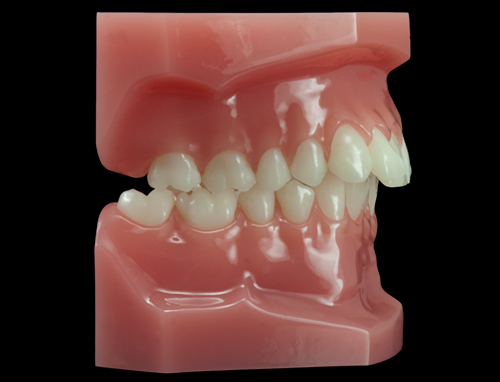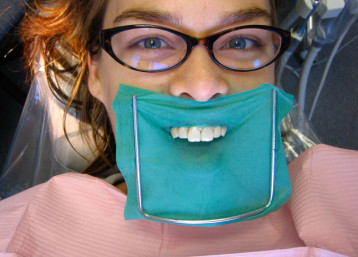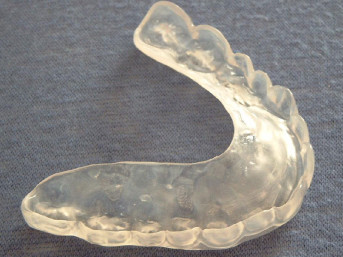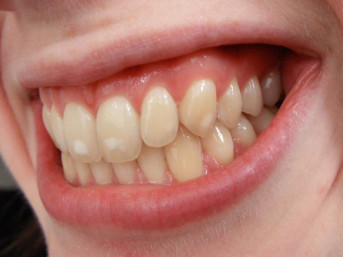Are you prone to grinding your teeth or clenching your jaw? Do you have consistent pain or tightness in your jaw, throat, or facial muscles? If so, you may be suffering from a TMJ disorder.
What is TMJ?
The TMJ, or temporomandibular joint, is the joint that you’ll find just in front of your ears on both sides of your head. It connects your jaw to the rest of your skull and allows it to move back and forth and side to side. Because of this joint we are able to move our mouths to eat, yawn, and speak. But there are a number of things that can irritate or damage this joint and the surrounding bone and tissue, and when this happens it is considered a case of TMJ disorder.
What causes TMJ disorder?
There are various causes for a TMJ disorder, but many common reasons have to do with jaw injuries or rheumatic diseases that affect joints, like arthritis. Tension in the head or neck are likely contributing factors to the disorder, as well as habitual tongue thrusting. Other habits that could trigger a TMJ disorder include constant teeth grinding and jaw clenching. Ill-fitting dentures have also proven to be a source of aggravation in the mouth and jaw, which can lead to a disorder.

How common are TMJ disorders?
Because of the differing severity in TMJ disorders, it is very difficult to determine just how many people are suffering with a disorder as the disorders often go untreated or unaddressed.
However, from the people who do have their problem addressed by a dentist, it is very common. Statistics show that, in general, TMJ disorders affect more women than men, but can happen to anyone, for a variety of reasons.
What are the symptoms?
TMJ disorders are responsible for producing chronic pain and aching in the face, ears, neck, and jaw. Other symptoms include locking of the jaw, popping or grinding in the jaw when chewing, swelling on the sides of the face, or a feeling as if the upper and lower teeth no longer fit properly.
How are TMJ disorders diagnosed?
Because TMJ disorders can happen due to a number of factors – things like inflammation or injury – it is sometimes difficult to differentiate a joint issue from some other kind of issue. Because of this, your dentist will review your medical history and complete a physical oral exam where they will listen for pops, clicks, or grinding sounds in your jaw. These sounds are characteristic of a TMJ disorder.
If it is still not evident whether you have a disorder or not, a test can be performed with an X-ray to view the jaw, its joints, and the surrounding facial structure. Other scans that may be done are MRI scans, which show the dentist the position of the jaw joint and make it easy to determine if it is misshapen or out of place, and CT scans, which show the bone structure supporting the jaw joint.

What should you do if you have a TMJ disorder?
If you feel that the symptoms of a TMJ disorder describe the discomfort you have been experiencing, you should tell both your dentist and your doctor as soon as possible so that steps can be taken to relieve the pain.
How is a TMJ disorder treated?
Treating TMJ disorders depends on the severity of the disorder and the pain associated with it. If inflammation is the source of the issue, your dentist will likely prescribe a medication to help the inflammation and pain subside and to help relax your jaw. If your disorder is stress triggered, an anti-anxiety medication may be prescribed to help manage the stress that could be causing lockjaw, for example.
If the source of your TMJ disorder is teeth grinding or constant teeth clenching, you will likely be fitted for a mouth piece that will keep your upper and lower teeth from touching each other. This will decrease the damage caused to teeth and gums and will also help to alleviate the stress put on the jaw. The most common mouth pieces are mouthguards and splints. Both of these fit over the teeth to keep them slightly apart, but mouthguards are typically only worn while you sleep, while splints are worn all the time. They are both potential long-term solutions that aim to correct jaw clenching habits, but can frequently provide immediate, short-term relief.

Missing teeth or other oral issues that can create an uneven biting surface are also a source of TMJ disorder as this can cause stress to the jaw joints. Having dental work done is likely the best option for these situations and this can include having veneers, bridges, crowns, or braces fitted to correct the bite.
Further treatment may call for a visit to an oral surgeon. These doctors specialize in surgery of the face and jaw and can help to correct any misalignment or other issues that may be causing the disorder. As always, if you have any questions or concerns, you can feel free to reach out to us or any of our member clinics. We cannot diagnose problems over the phone or by email, but we may be able to suggest options for finding the best possible solution for you.







